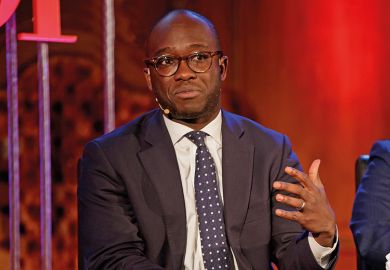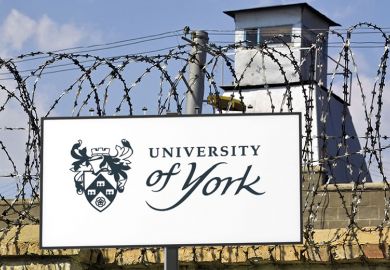Sam’s song (part two)
Last week, we were thrilled to bring you the news that the centuries-old debate about the true value of a university education had at last been resolved by former investment banker and now minister for universities, Sam Gyimah.
Yes, we can now as readily forget John Henry Newman’s suggestion that a university’s primary value is to be found in its ability to teach students “to think and to reason and to compare and to discriminate and to analyse” as we can toss aside the suggestion by Daniel Gilman, the first president of Johns Hopkins University, that higher education means “a wish for less misery among the poor, less ignorance in schools, less bigotry in the temple, less suffering in the hospital, less fraud in business, less folly in politics”.
All such pre-modern thinking has been flushed down the drain of history by Mr Gyimah’s outstanding insight that the true value of a university is to be discovered in nothing more or less than the actual salary earned by individual graduates.
But there’s a downside. At the moment, there is still no precise way to know the exact value of a degree in advance, whether, for example, a degree in philosophy at the University of Poppleton is more valuable than a degree in dentistry at the City University of Poppleton. According to the excellent Mr Gyimah, we may have to wait at least another couple of years before students are able to choose their degrees using an online commercial evaluation tool such as moneysupermarket.com.
Enter The Poppletonian. We asked Professor Mike “Buffy” Bufton, the head of our department of neoliberal economics, who enjoyed a leading place among the legion of senior economists who utterly failed to predict the last great economic crisis, if he would devise a couple of examples that might, even at this early stage, enable us to decide on the respective value of two quite different degrees. Here is his helpful analysis.
“Now, quite clearly this is a complex matter, so I’ve endeavoured to bring some clarity to the minister’s complex formulation of degree value with two examples.”
Degree number one
Consider a male student from a wealthy family in the south-east of England who attends a private school and then moves on to take a degree in almost any old subject of his fancy at either Oxford or Cambridge. After graduating with almost any old degree, he is quickly picked up by a London-based investment company that specialises in hiring well-spoken, white, male Oxbridge graduates with almost any old degree.
Degree number two
Consider a female student from a low-income family in the north-east of England who attends a local comprehensive school and then, having gained the requisite A levels, gains a place at a non-Russell Group university where she studies a subject that matches her intellectual interests, graduates with a first-class degree and, after a range of interviews, is eventually offered a post in education, social policy or welfare, in which she can make some small contribution to the betterment of society and other people’s lives.
All clear so far? Excellent. Let’s put those examples online in the manner envisaged by Mr Gyimah and see what happens.
Wait a moment. Wait a moment. Yes, here comes the answer! The value of degree number one exceeds the value of degree number two by just over £50,000 a year. Kerching!
(Next week: why should the Royal National Lifeboat Institution expend valuable resources on saving poor people? An economic analysis.)
Register to continue
Why register?
- Registration is free and only takes a moment
- Once registered, you can read 3 articles a month
- Sign up for our newsletter
Subscribe
Or subscribe for unlimited access to:
- Unlimited access to news, views, insights & reviews
- Digital editions
- Digital access to THE’s university and college rankings analysis
Already registered or a current subscriber?



